Understanding allergies and sinus issues is more important now than ever. As environmental pollutants, pollen, and artificial food additives increasingly impact our health, people are turning to natural treatment for allergies and sinus conditions as a safer, long-term solution. While conventional treatments like antihistamines and decongestants have their place, they often come with side effects and only provide temporary relief. This has led many to explore holistic, evidence-based alternatives that work in harmony with the body rather than masking symptoms. In this comprehensive article, we delve into natural remedies, lifestyle strategies, and integrative therapies that offer powerful and sustainable allergy relief.
You may also like: Can You Manage High Blood Pressure Without a Prescription? What to Know About OTC Drugs for Hypertension and Their Safety
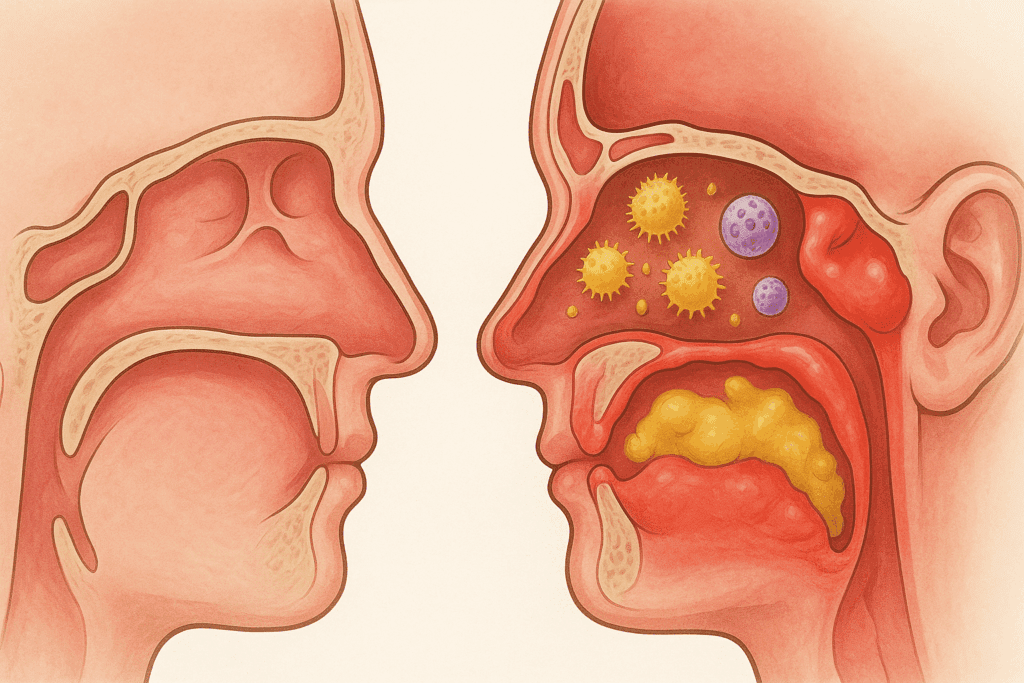
The Science Behind Allergies and Sinus Reactions
Allergies are exaggerated immune responses to substances that are typically harmless to most people. These substances, known as allergens, can include pollen, dust mites, pet dander, mold, and certain foods. The immune system of an allergic person misidentifies these substances as threats and produces immunoglobulin E (IgE) antibodies, which then trigger the release of histamines. This cascade of immune responses leads to symptoms such as sneezing, nasal congestion, itchy eyes, and sinus inflammation. Sinus problems often accompany allergies because the nasal passages become inflamed and blocked, creating a perfect environment for infection.
Understanding the underlying mechanisms of these reactions is key to finding lasting relief. It isn’t just about suppressing symptoms; it’s about modulating the immune response, reducing inflammation, and supporting the body’s natural detoxification processes. Natural remedies can target these root causes without the harsh side effects of synthetic drugs, offering a holistic path toward healing.
Why Conventional Allergy Medications May Not Be Enough
For many adults, allergy medicine for adults is often the first line of defense against seasonal sniffles and congestion. Antihistamines like loratadine, cetirizine, and diphenhydramine are widely used and can be effective for short-term symptom control. However, these medications do not address the underlying immune dysfunction and can cause drowsiness, dry mouth, or even cognitive impairment in some individuals.
Allergy relief medication is typically designed to act quickly and suppress the body’s histamine response. While this provides temporary relief, it doesn’t offer a long-term solution, especially for chronic sufferers. Allergy relief medicine can also lose effectiveness over time, and users may find themselves cycling through different products in search of consistent results. For individuals seeking sustained wellness and fewer side effects, integrating natural therapies can be a transformative approach.
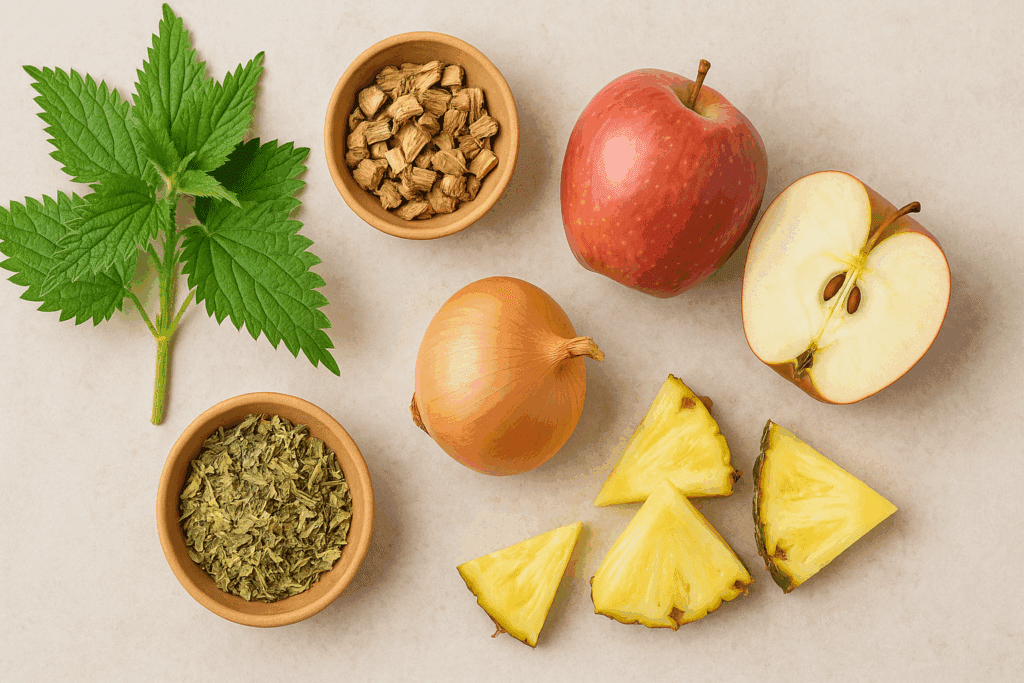
Essential Herbs and Botanicals for Natural Allergy Relief
Nature offers a pharmacopeia of herbs and plants that possess anti-inflammatory, antihistamine, and immune-modulating properties. These natural remedies for allergies not only provide symptomatic relief but also support the body’s resilience against allergens. One of the most well-researched herbs in this context is stinging nettle (Urtica dioica), which has been shown to reduce histamine production and alleviate allergic rhinitis. When used consistently, it may help manage symptoms without sedative effects.
Another powerful plant-based remedy is butterbur (Petasites hybridus), known for its effectiveness in relieving nasal congestion and sinus pressure. Quercetin, a natural bioflavonoid found in apples, onions, and green tea, stabilizes mast cells and prevents the release of histamine. Additionally, bromelain, an enzyme extracted from pineapple, has been shown to reduce sinus inflammation and improve breathing in allergy sufferers. These botanicals can be taken as supplements or incorporated into daily meals to enhance natural allergy relief.
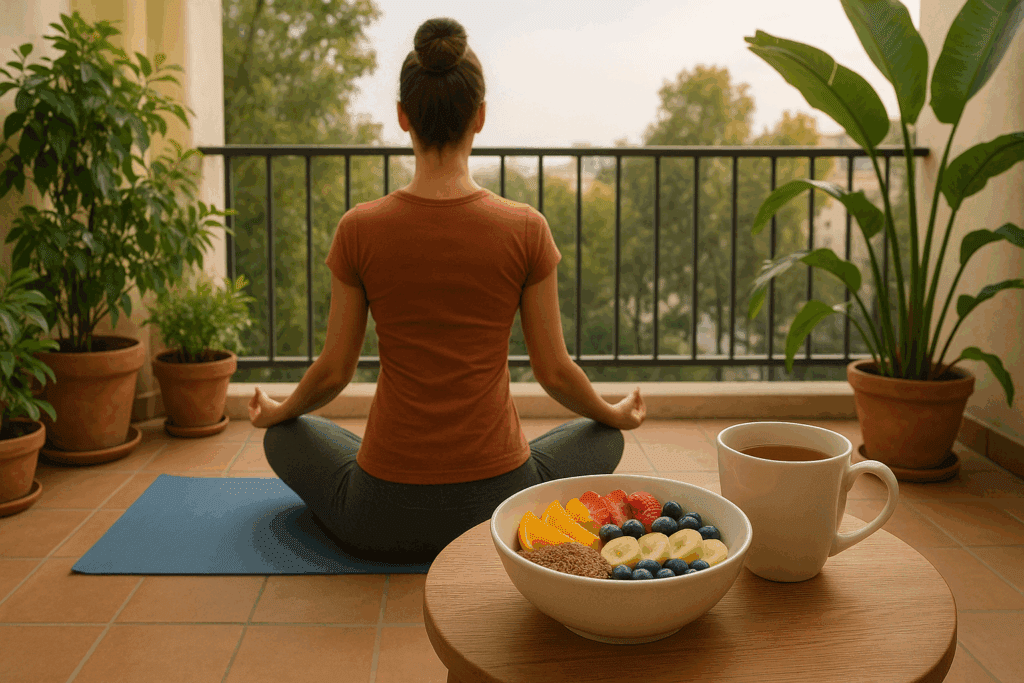
Lifestyle Strategies That Support Immune Health
The immune system’s response to allergens is not just influenced by exposure to external irritants but also by internal factors such as stress, diet, and sleep. Chronic stress elevates cortisol levels, which can suppress immune function and increase sensitivity to allergens. Managing stress through meditation, yoga, and deep breathing exercises can help modulate the immune response and reduce flare-ups.
A nutrient-dense diet rich in antioxidants, healthy fats, and probiotics plays a crucial role in regulating inflammation and supporting the gut-immune axis. Fermented foods like kefir, sauerkraut, and miso introduce beneficial bacteria that enhance gut health and may reduce allergic responses. Omega-3 fatty acids from flaxseed, chia seeds, and fatty fish have anti-inflammatory effects that can calm sinus irritation and reduce mucosal swelling. Quality sleep also enhances immune regulation, giving the body time to recover and adapt.
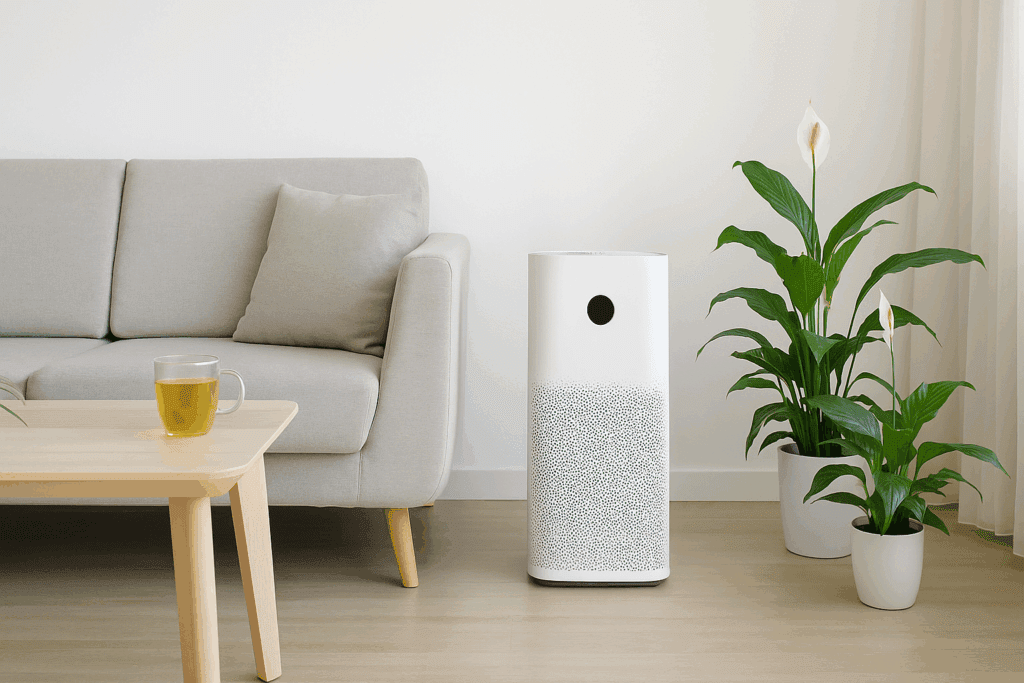
Hydration and Air Quality: Two Overlooked Keys to Allergy Relief
Proper hydration is essential for thinning mucus and maintaining the integrity of mucosal barriers in the nasal passages and sinuses. Dehydration can exacerbate congestion and make it harder for the body to clear allergens. Drinking herbal teas like ginger, peppermint, or chamomile not only boosts fluid intake but also introduces anti-inflammatory compounds that can soothe irritated tissues.
Indoor air quality is another critical yet frequently overlooked component of allergy management. Air purifiers with HEPA filters can remove pollen, mold spores, and pet dander from the environment. Using hypoallergenic bedding, vacuuming with HEPA-equipped cleaners, and keeping windows closed during high pollen seasons can drastically reduce exposure to allergens. Regularly changing HVAC filters and incorporating indoor plants known for air purification, such as spider plants and peace lilies, can further enhance respiratory wellness.
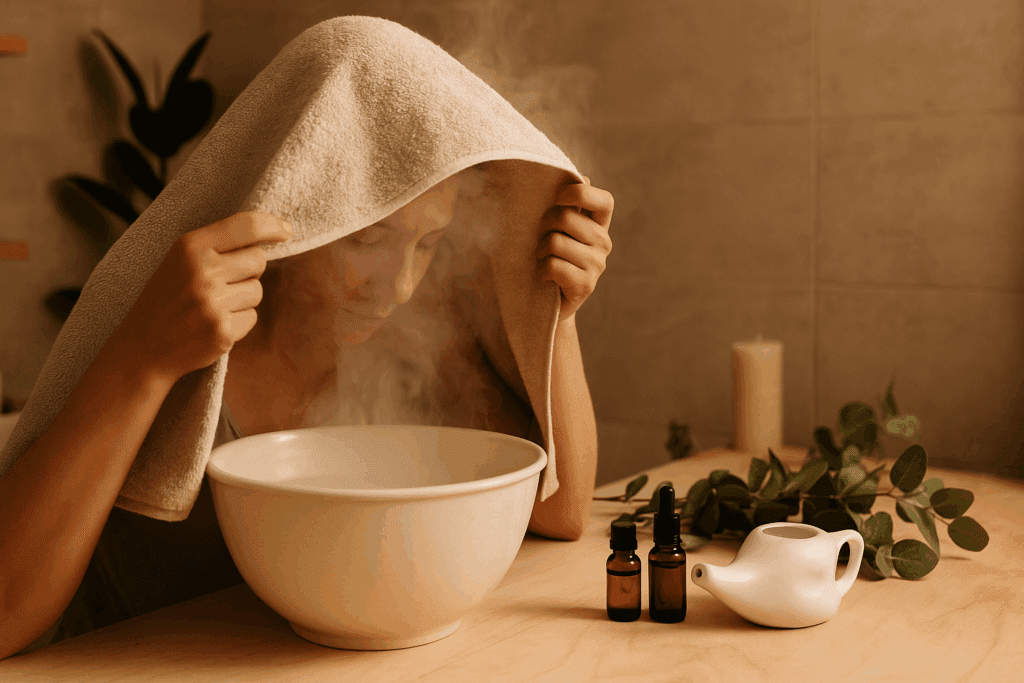
The Role of Nasal Irrigation and Steam Therapy in Sinus Health
Nasal irrigation using saline solutions is one of the most effective home remedies for allergies. This practice, commonly known as nasal rinsing or using a neti pot, helps flush out allergens, reduce nasal inflammation, and restore moisture to dry membranes. When performed regularly, nasal irrigation can significantly reduce the need for allergy relief medicine and improve breathing comfort.
Steam therapy is another valuable natural treatment for allergies and sinus congestion. Inhaling steam infused with essential oils like eucalyptus, tea tree, or lavender can open nasal passages and offer antimicrobial benefits. This technique promotes drainage of the sinuses, reduces pressure, and provides immediate relief. Both nasal rinsing and steam inhalation can be integrated into a daily self-care routine for maximum benefit.
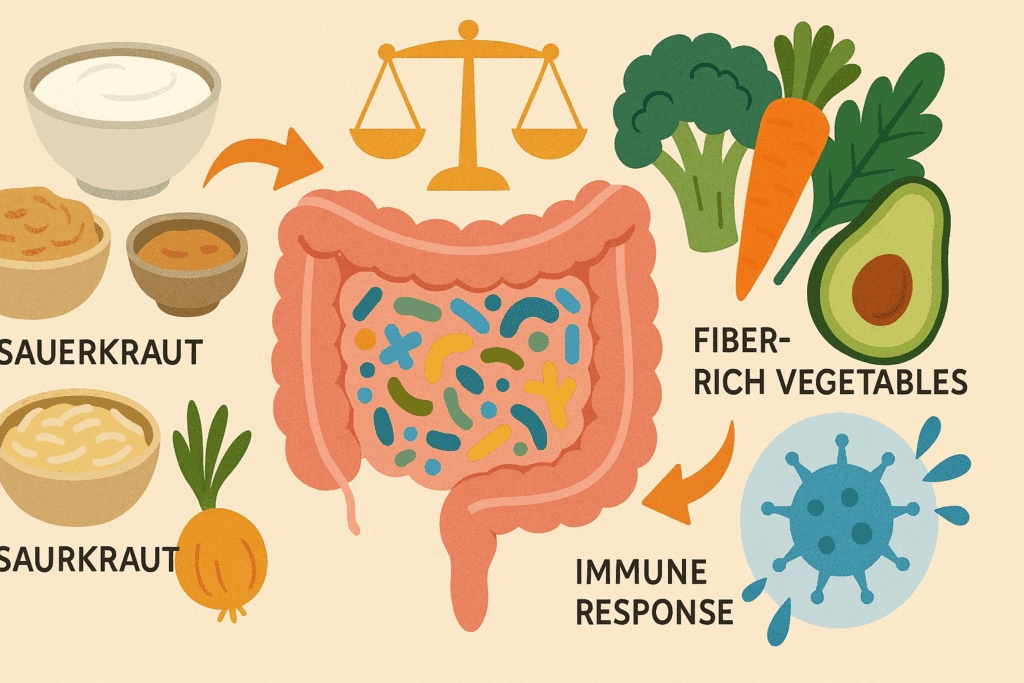
Understanding the Gut-Allergy Connection
A growing body of research suggests a strong link between gut health and immune function, particularly in the context of allergies. The gut microbiome plays a central role in training the immune system to distinguish between harmful invaders and benign substances. Dysbiosis, or microbial imbalance in the gut, is associated with increased allergic reactions and chronic inflammation.
Restoring microbial balance through probiotics and prebiotic-rich foods can enhance immune tolerance and reduce hypersensitivity to allergens. Natural remedies for seasonal allergies often include probiotic supplements with strains such as Lactobacillus rhamnosus and Bifidobacterium lactis, which have been shown to reduce allergy symptoms in clinical studies. Supporting gut health with fiber-rich foods, avoiding excessive antibiotics, and minimizing processed sugar intake can further enhance immune resilience.
How to Relieve Allergies Naturally Through Mind-Body Practices
Mind-body therapies offer a unique approach to allergy management by addressing the psychological and emotional dimensions of immune reactivity. Practices like mindfulness meditation, progressive muscle relaxation, and tai chi help reduce stress-induced immune dysregulation. These techniques promote parasympathetic nervous system dominance, which counteracts inflammation and supports recovery.
Research has shown that regular meditation can lower pro-inflammatory cytokines and increase immune regulation, making it an effective complement to natural allergy relief. Visualization exercises and breathwork can also help individuals manage anxiety associated with allergy flare-ups, creating a more balanced internal environment. Incorporating these practices into daily life not only supports allergy relief but also enhances overall well-being.
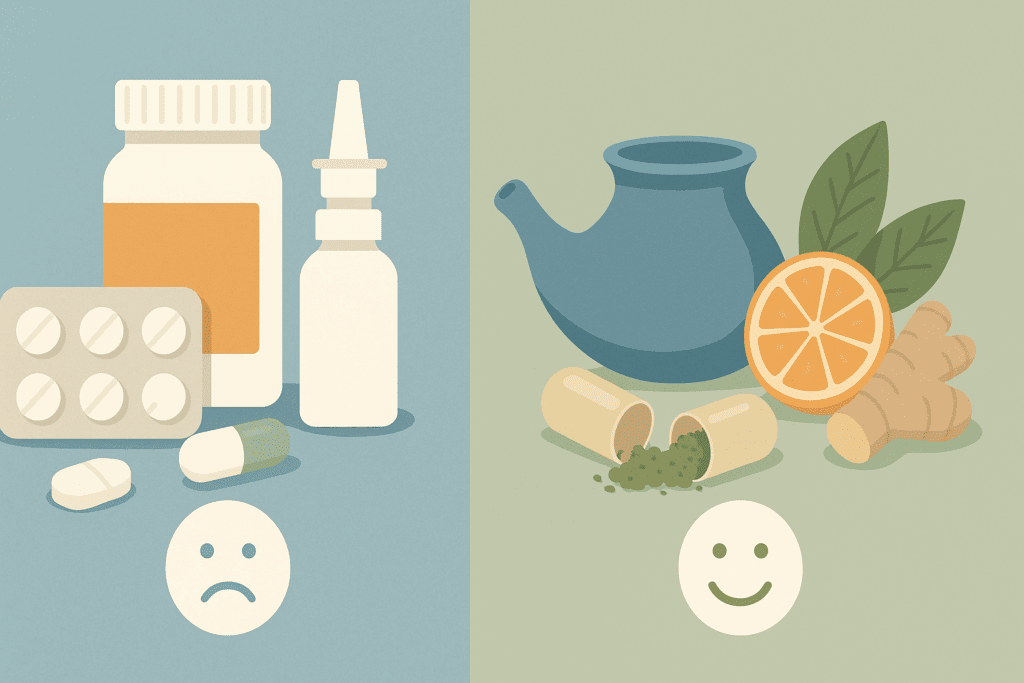
Evaluating the Best OTC Allergy Medicine Versus Natural Options
Many individuals seek the best OTC allergy medicine in the hopes of finding fast and reliable relief. Over-the-counter medications like loratadine, fexofenadine, and nasal corticosteroids are effective in controlling symptoms but often come with limitations. Side effects, diminished long-term efficacy, and dependency are common concerns.
Natural treatments, on the other hand, offer a more sustainable and integrative path. While they may require a longer time frame to show results, their cumulative benefits often extend beyond allergy relief. The best allergy meds for long-term use are those that align with the body’s natural rhythms and promote healing rather than suppression. For example, combining quercetin supplements with dietary changes and nasal irrigation can be as effective as pharmaceutical options without unwanted side effects. It is important to consult a healthcare provider before transitioning from allergy medicine for adults to natural alternatives, especially for those with severe reactions.
Natural Treatment for Allergies and Sinus: A Comprehensive Guide to Holistic Wellness
Taking a holistic approach to natural treatment for allergies and sinus issues requires more than just using a few herbs or trying a nasal rinse. It involves a shift in lifestyle, awareness, and intentional self-care. From dietary changes to mindfulness practices, each component plays a role in strengthening the immune system and reducing allergic responses.
A well-rounded strategy includes using targeted botanicals like stinging nettle and quercetin, optimizing air quality, maintaining hydration, and prioritizing gut health. This multifaceted approach not only offers allergy relief but also improves energy levels, sleep quality, and mental clarity. For those searching for how to relieve allergies naturally and reduce dependence on medication, this integrated pathway provides a powerful roadmap.
How to Stop Allergies Immediately: A Realistic Perspective
It is important to clarify that there is no single method that can stop allergies immediately or cure them permanently. Claims about how to stop allergies instantly or how to get rid of allergies quick should be approached with caution, as they often oversimplify a complex biological process. That said, certain interventions can provide rapid relief.
Using a combination of steam inhalation, nasal irrigation, and antihistamines may reduce symptoms within minutes. Drinking water with apple cider vinegar, consuming local honey, and taking a high-dose vitamin C supplement can also help shorten the duration of symptoms. However, long-term success lies in addressing underlying immune dysfunction, environmental triggers, and dietary habits. Individuals looking for how to get rid of seasonal allergies permanently should focus on gradual, sustainable changes supported by both conventional medicine and natural therapies.
What Helps with Allergies at Home: Building Your Natural Medicine Cabinet
Creating a home environment that supports allergy relief is one of the most effective ways to manage symptoms without relying on continuous medication. What helps allergies at home often includes simple yet powerful tools such as HEPA filters, humidifiers, and essential oils. Natural remedies for allergies can be stored in a dedicated wellness kit that includes saline sprays, herbal teas, tinctures, and nasal rinses.
Investing in hypoallergenic bedding, regularly cleaning air vents, and using non-toxic cleaning products reduces indoor allergens significantly. Herbal allies like elderflower, mullein, and licorice root can be made into teas that soothe respiratory passages. For those wondering how to help allergies naturally, starting with a clean and supportive home environment can lay the foundation for long-term relief.
Which Allergy Medicine Works Best? Finding a Personalized Path
There is no one-size-fits-all answer to which allergy medicine works best, as individual responses vary widely. Factors such as the type of allergy, severity of symptoms, and underlying health conditions all influence effectiveness. While some may find that the best allergy medicine for cough or congestion is a standard antihistamine, others may benefit more from homeopathic or herbal alternatives.
Personalized medicine, including genetic testing and microbiome analysis, is emerging as a way to tailor treatments based on individual biology. Functional medicine practitioners often combine conventional and natural strategies to develop customized plans that address both symptoms and root causes. As the demand for natural allergy relief grows, more integrative approaches are being validated through research and clinical practice.
Natural Remedies for Seasonal Allergies That Offer Lasting Relief
Seasonal allergies can be particularly disruptive, impacting daily life and reducing productivity. Natural remedies for seasonal allergies include a range of interventions that aim to desensitize the immune system and improve resilience. Local honey, for instance, introduces trace amounts of regional pollen and may help build tolerance over time.
Increasing vitamin D levels through sunlight or supplementation can also reduce allergic inflammation. Homeopathic formulations like Allium cepa and Sabadilla are widely used for seasonal allergies and can complement other therapies. Keeping a symptom diary, identifying triggers, and adjusting lifestyle habits seasonally are crucial strategies for managing allergies throughout the year.
What Are the Best Allergy Pills? Understanding Natural Alternatives
Many people ask what are the best allergy pills when seeking convenient relief, but few consider the full spectrum of available options. While synthetic pills are effective in acute cases, natural alternatives like freeze-dried stinging nettle capsules, quercetin, and NAC (N-acetylcysteine) offer multi-layered benefits. These supplements not only address histamine release but also support detoxification and respiratory function.
For adults looking for the best allergy medicine for adults that aligns with long-term health goals, natural pills and tinctures provide a compelling option. They often work synergistically with lifestyle changes, offering broader wellness benefits. It is essential to research the quality, dosage, and sourcing of natural supplements and consult a knowledgeable healthcare provider before making changes.
Frequently Asked Questions (FAQ)
How can natural treatment for allergies and sinus help those with long-term medication resistance?
Natural treatment for allergies and sinus can offer significant benefits for individuals who have developed resistance or diminished response to conventional medications. Many people find that over time, allergy relief medication becomes less effective, especially when used continuously across multiple seasons. Natural alternatives, such as quercetin, bromelain, and stinging nettle, help regulate immune response at the root level instead of merely blocking symptoms. These remedies can modulate histamine release, reduce chronic inflammation, and support detox pathways, providing more sustainable outcomes. Additionally, individuals who experience side effects from the best allergy meds may find herbal alternatives gentler and more compatible with long-term use.
What are lesser-known home remedies for allergies that support sinus drainage?
Beyond popular options like steam inhalation and saline rinses, several lesser-known home remedies for allergies can enhance sinus health. Using warm castor oil compresses over the sinuses can improve lymphatic drainage and relieve pressure. Incorporating culinary herbs such as turmeric and rosemary into meals provides ongoing anti-inflammatory support for the sinuses. Drinking fenugreek seed tea may help thin mucus and ease nasal passage congestion naturally. While not a standalone solution, sleeping with the head slightly elevated improves sinus drainage overnight and reduces morning symptoms. These remedies are especially helpful when paired with natural allergy relief strategies to reinforce daily sinus hygiene.
What is the best allergy medicine for cough related to postnasal drip?
Coughing due to postnasal drip is a common symptom of allergies, and identifying the best allergy medicine for cough involves addressing both inflammation and mucus overproduction. In conventional medicine, a combination of antihistamines and expectorants is often recommended. However, for those preferring natural methods, marshmallow root and slippery elm are soothing botanicals that coat the throat and reduce irritation. NAC (N-acetylcysteine) is a supplement that breaks down mucus and supports respiratory health. Whether selecting natural or pharmaceutical options, it’s essential to evaluate whether the chosen solution aligns with your broader goal of allergy relief without fostering dependency or masking deeper issues.
Can natural remedies for allergies reduce dependency on over-the-counter medications?
Yes, many individuals successfully reduce or even eliminate their need for best otc allergy medicine by adopting natural remedies for allergies. Long-term dependence on OTC drugs can sometimes mask underlying inflammation, whereas natural treatments often promote healing and regulation. For example, consistent use of nettle leaf extract, local honey, and vitamin C can build immune tolerance to seasonal allergens. Additionally, nasal irrigation and HEPA-filtered environments help minimize allergen load, reducing the severity of symptoms and the need for medication. It’s important to taper off medications responsibly and consult a healthcare provider to ensure the transition is safe and effective.
How to relieve allergies naturally when symptoms spike unexpectedly?
Knowing how to relieve allergies naturally during sudden flare-ups can be critical, especially in high-pollen environments or indoor dust exposure. A quick combination of strategies includes performing a nasal rinse with a buffered saline solution, followed by inhaling steam with a few drops of eucalyptus oil. Consuming a high-dose natural antihistamine such as quercetin or vitamin C with bioflavonoids can help reduce acute inflammation. Hydrating with herbal teas like peppermint or ginger supports mucus thinning and respiratory ease. These immediate measures, when used correctly, can bridge the gap between environmental exposure and full symptom resolution without reaching for synthetic allergy relief medicine right away.
What helps with allergies that worsen during travel or seasonal transitions?
Traveling to new environments or shifting seasons can expose the body to unfamiliar allergens, making it important to know what helps with allergies in dynamic conditions. Carrying portable HEPA air purifiers for hotel rooms and car rides can significantly reduce airborne irritants. Packing a travel-friendly kit with natural allergy relief staples—such as stinging nettle capsules, saline nasal spray, and peppermint oil—ensures you’re prepared for unexpected triggers. Staying hydrated and avoiding sugary or processed travel snacks also supports immune balance. If you know your destination’s allergy profile, preemptively taking natural remedies for seasonal allergies can prevent an immune overreaction upon arrival.
How to stop allergies immediately using non-pharmaceutical methods?
While no solution can truly stop allergies immediately in the absolute sense, several rapid-response strategies can offer noticeable relief within minutes. Nasal irrigation is often the first and most effective method, especially when combined with cooled chamomile or goldenseal tea for added anti-inflammatory benefits. Inhalation of steam infused with oregano oil or tea tree oil can provide antimicrobial effects while opening the sinuses. Acupressure on sinus pressure points—such as the bridge of the nose and the inner brows—can reduce discomfort and drainage blockages quickly. These techniques are especially effective for individuals who are seeking how to stop allergies immediately naturally without resorting to drugs every time symptoms flare.
What is the best otc for allergies in individuals with autoimmune sensitivities?
Choosing the best otc for allergies becomes more nuanced when dealing with autoimmune conditions, as many ingredients in commercial products may trigger adverse reactions. Non-drowsy antihistamines like cetirizine or fexofenadine are generally preferred due to their minimal impact on the immune system. However, people with autoimmune issues often turn to natural treatment for allergies and sinus inflammation to avoid synthetic compounds altogether. Botanicals like reishi mushroom, which modulates immune activity, or turmeric, known for its systemic anti-inflammatory properties, may be better tolerated. It’s always best to consult a functional medicine practitioner to evaluate which allergy relief medicine aligns with the specific immune challenges of the individual.
How to get rid of seasonal allergies permanently with emerging therapies?
The quest for how to get rid of seasonal allergies permanently is increasingly informed by cutting-edge approaches that go beyond traditional remedies. Sublingual immunotherapy (SLIT) involves placing small doses of allergens under the tongue to retrain the immune system gradually. Advances in gut microbiome therapy also suggest that specific probiotic strains can help reduce allergic sensitivity at its root. Low-dose allergen exposure protocols, managed under medical supervision, are showing promise in reducing hyper-reactivity to pollen and dust over time. While these therapies require time and consistency, combining them with a solid foundation of natural remedies for seasonal allergies enhances their effectiveness. The integration of emerging science with holistic methods offers a powerful, long-term strategy for allergy freedom.
Which natural treatment for allergies and sinus is safest for children and pregnant individuals?
When considering a natural treatment for allergies and sinus health during pregnancy or childhood, safety and efficacy must be prioritized. Gentle options such as saline nasal sprays, steam inhalation, and local honey (only for children over one year old) are generally considered safe. Herbal teas made from chamomile or rooibos can reduce inflammation and soothe the respiratory tract without harsh chemicals. Probiotic-rich foods like yogurt and kefir support immune balance in a non-invasive way. However, even with natural products, consultation with a healthcare provider is essential, as some herbs and essential oils may not be suitable for all life stages. These gentler methods provide effective allergy relief while minimizing the risk of adverse effects on sensitive populations.
Closing Thoughts on Natural Treatment for Allergies and Sinus Relief
As we navigate a world filled with environmental stressors, allergens, and immune challenges, turning to natural treatment for allergies and sinus issues offers a sustainable and empowering path. These approaches not only provide relief but also strengthen the body’s capacity to adapt and thrive. From time-honored herbs to cutting-edge probiotic science, the landscape of natural allergy relief continues to expand.
This journey requires patience, experimentation, and a willingness to view health holistically. Integrating natural remedies, improving lifestyle choices, and fostering a resilient immune system are all part of the solution. While no method can guarantee to stop allergies immediately, the combination of science-backed strategies and mindful living can dramatically improve quality of life. For those seeking how to get rid of allergies fast without compromising their well-being, the answers lie not in suppression, but in understanding and restoring balance.
Further Reading:
Home Remedies: How to Stop Allergies Immediately
The Best Natural Remedies for Seasonal Allergies
Allergy Medicine: Comparing the Best OTC Allergy Medications


